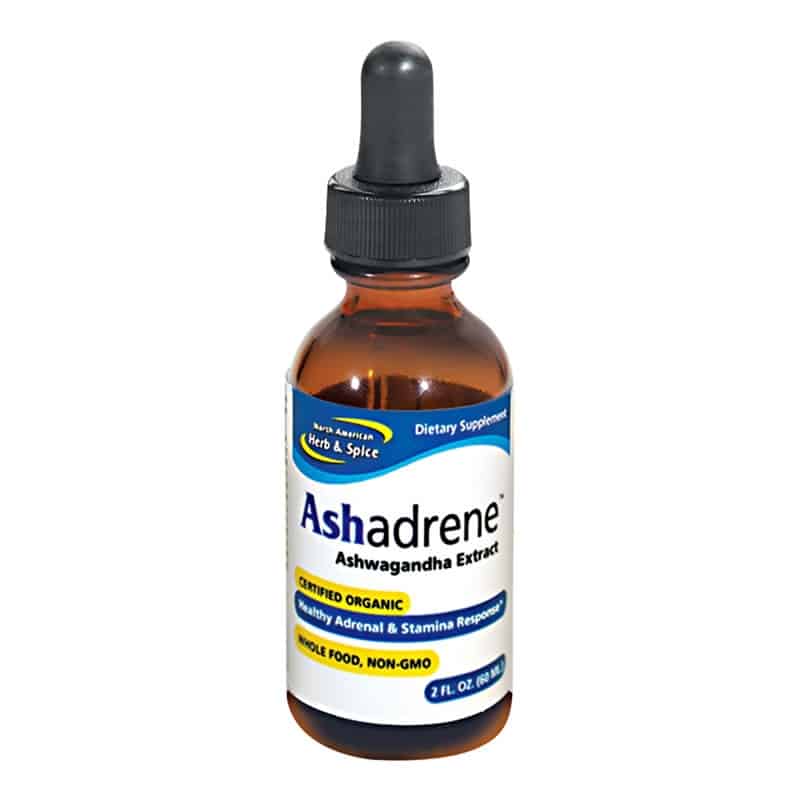No products in the cart.
Adrenal Fatigue
Loss of Energy Means You Need a Change
Adrenal fatigue is a wake up call to see that some area of your life is out of balance. Try to see every discomfort as a friend, showing you that something needs to change in your life.
Recovery from adrenal fatigue is certainly possible. It may take several months to several years of improving your lifestyle. This includes detoxing, diet, supplements and herbs. You must also attend to your emotional and spiritual health.
Our society glamorizes working to the point of exhaustion. There is nothing glamorous about adrenal fatigue. It doesn’t make you a hero to run your body and mind right into the ground.
Take time to breathe, take time to meditate and generally take some time to care for yourself.
Listen to the wisdom of your body. Be open to new ways of doing things and don’t be blinded by society’s expectations.
This may be the beginning of real living.
Lifestyle Changes
First, slow down! Start listening to your body. Take time out to closer your eyes and take deep breaths several times during the day.
Work on letting go of resentment, blame, guilt, worries and fear. These emotions can negatively impact your adrenals. Consider taking a yoga class or meditating.
You need at least 9 hours of sleep. There is no substitute for adequate rest. Sleep is not a waste of time and it is vital to your healing.
Take a hot bath with lavender or neroli oil before bed. You can even add some Epsom salts to the bath for some extra magnesium. This can help calm frazzled nerves.
Exercise
Vigorous exercise is not helpful at all. Forget about running, jogging, cross fit etc. Gentle walking, light swimming and restorative yoga are much better choices. The old advice that if you exercise harder you will have more energy does not apply in times of adrenal fatigue. A gentle walk out in the fresh air will do much more for you than a session at the gym when you have adrenal fatigue.
Chiropractic and Massage
Both chiropractic and massage therapy can be very helpful. If you can find a massage therapist that does craniosacral work, that is very calming to the nervous system.
Acupuncture
Acupuncture and Traditional Chinese Medicine can also be very helpful in recovery from adrenal fatigue.
Digestive Help
Using digestive enzymes or bitters can be very helpful. Since the fight or flight response takes energy away from digestion, it is much harder to digest your food and absorb your nutrients. Bitters are a great way to go as they stimulate the digestive process and work on toning and mild cleansing of your liver and gallbladder. Some people do well combining bitters and enzymes. Try a few things and see what works best for you.
Overcoming Adrenal Fatigue with Nutrients and Herbs
Remember more is not always better. Trying to get better faster by just taking huge amounts of vitamins and herbs isn’t going to work.
Vitamin C is very important for the adrenals. Aim to have at least 1000mg 2-3x daily.
B-Vitamins also need to be taken as well as vitamin D and magnesium.
Herbs that are good for the adrenals are Ashwagandha (except if you have hyperthyroidism), holy basil, rhodiola, kava kava (can be stimulating to some people), magnolia bark, licorice root (this one can be too stimulating for some people), borage flowers made into a tea with some burdock tincture added is very good at helping rebuild the adrenals. Other helpful herbs that work with the nervous system are skullcap, milky oats, blue vervain and chamomile are very effective in calming the body and mind.
Main Symptom of Adrenal Fatigue
Loss of energy or fatigue is the main symptom of adrenal fatigue. Thousands of people suffer from constant low energy that unrelieved by rest and sleep. When your adrenal glands become depleted, you are nearly unable to handle stress.
Adrenal fatigue is a serious degeneration of your body’s energy system.
Most physicians do not diagnose adrenal fatigue. Rarely, if enough tests are run it may be called Addison’s disease, which they consider incurable.
Low energy impairs every system of your body. Negative emotions build up. The world looks bad, people are evil, and a hopeless attitude is common.
Other Common Symptoms and Consequences of Adrenal Fatigue
- Anger or Irritability
- Inability to tolerate extreme temperatures
- Weakness
- Unexplained hair loss
- Nervousness
- Difficulty building muscle or gaining weight
- Mental depression
- Apprehension
- Hypoglycemia (low blood sugar)
- Inability to concentrate
- Excessive hunger
- Tendency towards inflammation
- Moments of confusion
- Indigestion
- Poor memory
- Feelings of frustration
- Alternating diarrhea and constipation
- Osteoporosis
- Autoimmune diseases (hepatitis)
- Allergies and multiple chemical sensitivities
- Joint and muscle pain
- Low blood pressure, lightheadedness (dizziness that occurs upon standing)
- Heart palpitations
- Poor resistance to infections
- Insomnia
- Food and/or inhalant allergies
- PMS
- Craving for sweets
- Dry and thin skin
- Headaches
- Scanty perspiration
- Alcohol intolerance
Depression is very common in adrenal fatigue. You may lose interest in family, friends, work and even hobbies you once enjoyed may seem uninteresting. With low energy you may wonder if you have enough energy to get through the day, and then you may experience anxiety. Irritability is common, with the inability to handle even minor stress.
Unfortunately, many with adrenal fatigue function on anger and resentment. These act as adrenal stimulants, providing a negative energy with which to function.
Mental Health Effects
Compulsiveness and Obsessive Compulsion Disorder (OCD) are associated with adrenal fatigue. One may become addicted or very attracted to excessive exercise, sex, loud music or other forms of excitement. The unconscious goal is always the same, to stimulate the adrenals into activity.
Adrenal fatigue sets the stage for the development of degenerative diseases. Cancer, heart disease, Parkinson’s and Alzheimer’s diseases are end-stage results of toxin accumulation and energy depletion.
Often secondary to adrenal exhaustion are glandular imbalances such hyperthyroidism and more often hypothyroidism. The adrenal glands are the main source of estrogen and progesterone after menopause. Hot flashes and premenstrual syndrome are often due to weakened adrenal glands.
When the adrenals are weak, copper builds up in the body. Elevated copper enhances emotions. Panic attacks, bipolar disorder, mood swings and schizophrenia are related to copper imbalance. As one’s energy level declines, other toxic metals build up as well. Mercury, cadmium, lead, arsenic, beryllium and others contribute to hundreds of physical and emotional symptoms.
Stress Is the Ultimate Cause Of Adrenal Fatigue
The most common cause of adrenal fatigue stress. Some people use their body in fight or flight mode most (or all) of the time. This depletes their adrenal glands. Fast-paced, high-stress, fear-based lifestyles are a sure prescription for adrenal fatigue.
External stressors will eventually deplete your adrenal glands (life challenges, financial pressures, relationship issues and unresolved emotional issues).
Internal stressors can also put pressure on your adrenals (allergies, physical disease, nutritional deficiencies, food and environmental toxins).
Other Common Causes of Adrenal Fatigue
- Anger
- Fear
- Worry/anxiety
- Depression
- Guilt
- Overwork (physical or mental)
- Excessive exercise
- Sleep deprivation
- Light-cycle disruption
- Going to sleep late
- Surgery
- Trauma/injury
- Inflammation (chronic)
- Infections (chronic)
- Pain (chronic)
- Temperature extremes
- Toxic exposure
- Malabsorption
- Maldigestion
- Chronic illness
- Chronic-severe allergies
- Hypoglycemia
- Nutritional deficiencies
Any excessive stress can deplete the adrenals, especially when weakened by poor nutrition. Working too much or emotional stress are two common causes. Excessive stimulation, especially for children is another cause.
Many children today are born with weak adrenals due to the nutritional deficiencies of their parents. By age three or four, these children are in fatigue. They are often sick, depressed and have difficulty in school.
Nutrition
You need to feed and nourish your body properly. Avoid refined sugars, artificial sweeteners, refined carbohydrates and starches. Stimulants such as caffeine or energy drinks will only make things worse in the long run. It should go without saying, but fast-food and processed foods are harmful and will not be beneficial to your adrenals.
Eat as much fresh foods as possible and focus on eating organic. Look up “The dirty dozen” list of the most highly sprayed fruits and vegetables and avoid buying non-organic in those cases. Don’t overcook your vegetables, but lightly steam them instead.
Unhealthy responses to stress are another cause of adrenal fatigue. These include habits of worrying, or becoming angry or afraid. This applies particularly to high-strung, nervous individuals and those with very active minds, as they are especially prone to adrenal fatigue. A poor diet with various nutritional deficiencies is very common in our fast-paced society. And when under stress, your body’s need for nutrients is much greater. Excessive carbohydrates, low protein and poor water quality will stress your adrenals.
Most of us have diets low in nutrients required by the adrenals. These include B vitamins, vitamins A, C and E, manganese, zinc, chromium, selenium and other trace elements. The reasons for this begin with how food is grown. Most food is grown in depleted soils and then shipped hundreds if not thousands of miles. Processing and refining food further deplete nutrients.
Habits like eating in the car or while on the run further diminish the value derived from food. Also, allergic reactions to foods such as wheat and dairy products can damage your intestines and reduce the absorption of nutrients.
Eat Foods High In Potassium
It is important to keep your potassium/sodium levels balanced. When using salt, don’t use cheap table salt. Select unrefined pink Himalayan salt as it contains many trace minerals. Regular table salt is very unhealthy and should not be used in general.
Some foods that are high in potassium are dulse, kelp, sunflower seeds, almonds, raisins, parsley, brazil nuts and dates.
Toxic Environments
Toxic metals and chemicals in the air, water, food and dental materials often play a large role in adrenal fatigue. Drugs, both legal and recreational can also add to your toxic load. Toxins may also be generated within the body due to impaired digestion. When food is not properly digested, it can ferment or rot in the intestines and produce many harmful substances that are re-absorbed into the body. In most people the organs of elimination do not function at an optimal level. As a result, toxic substances slowly build up in the body leading to adrenal fatigue and many other health conditions.
In addition, adrenal fatigue can be genetic, as well as from excessive electromagnetic pollution such as cell phones, power lines & transformer stations, televisions, microwave ovens, computers.
Overcoming Adrenal Fatigue by Detoxifying
As adrenal fatigue can be caused by toxic accumulation and overload, detoxing is a good idea.
Using Zeolite will get rid of heavy metals in your body. Using Fulvic acid can also help with other substances that need to be detoxified. You may want to consider a Candida cleanse as well. Candida can also cause severe fatigue and due to high sugar diets and antibiotic use, most people have Candida overgrowth.
Clean up your environment. Replace toxic chemical home and personal care products with more natural options. There are non-toxic alternatives available for practically everything. Anything with the word “fragrance” in the ingredients should be avoided.
Anything you breathe in, put on your skin, wash yourself or your clothes with will probably need to be replaced with a non-toxic option. A good rule of thumb is to stay away from popular brand name products and look for smaller companies making non-toxic products without synthetic fragrances added.
Adrenal Glands Underactive Or Overactive?
Adrenals – Overactive
- persistent high blood pressure for some time
- rapid pulse
- edema or fluid retention of the facial tissues
- stronger than average physically
- strong feelings, tend to “blow up” or dislike being crossed
- FEMALE: excess hair on face, arms or legs, masculine aspects
- MALE: baldness, excess hair on arms and back, muscular “square” build, aggressive in business or sports
Adrenals – Underactive
- eyes sensitive to bright lights, headlights, sunlight
- tightness or “lump” in throat, hurts when emotionally disturbed
- voice rises to high pitch or is “lost” during stress, such as arguments, public appearances, etc.
- easily shaken up or startled, heart pounds hard from unexpected noise
- prefer being alone, uneasy when “center of attention”
- blood pressure fluctuates, sometimes too low
- blood pressure decreases when going from going from a lying down position to a standing position
- known as a perfectionist, set high standards
- avoid complaints, try to ignore discomforts or inconveniences
- work off worries, things left undone cause unusual concern
- allergies, such as skin rash, dermatitis, hay fever, severe sneezing attacks, asthma, etc.
- emotional upsets cause complete exhaustion, must go and lie down when under heavy stress
- inferiority complex
- depression often relieved by eating
- panic attacks
- paranoia, phobias
- guilt feelings
- heart palpitations
- pain or tightness in the upper neck and/or scalp
- compulsive behavior
- unusually ticklish
- a head of fine thin hair
- asthma
- suffer from recurrent infections, viruses
- chronic heartburn
- unusual craving for salt, sweets
- intolerance to alcohol, cigarette smoke or exhaust fumes
- perspire excessively
- alternating constipation and diarrhea
- blood sugar disturbances
- clenching or grinding of teeth at night
Myths About Adrenal Fatigue
Myth: Adrenal fatigue is a new thing
In fact, adrenal fatigue is as old as humanity and can help us to understand the rise and fall of civilizations. Constant wars can contribute to adrenal fatigue. Toxic exposure in lead water pipes can contribute to adrenal fatigue. Destructive religious ideas can be a factor, and oppressive economic systems can contribute.
The process of adrenal fatigue can be cumulative. Children born to burned out parents continue the pattern until the entire group goes into fatigue. Melting pot nations like America have an advantage in this regard, as new immigrants are often more ambitious and in better health, and can help rejuvenate the population. Also, nations that emphasize freedom and individual rights allow people to devise better ways of coping and maintaining their health.
Myth: A vacation, better diet, or nutritional supplements will cure adrenal fatigue.
Recovery from adrenal fatigue requires a strong commitment to healing that most people do not posses. Often, a number of natural therapies are required, over several years. If you recover quickly, adrenal fatigue was not the problem.
Myth: Plenty of sleep will cure adrenal fatigue.
Adrenal fatigue interferes with the restorative power of sleep. The body is unable to regenerate during sleep. Like a dead battery, the body does not recharge itself during sleep. Waking up tired after 8-10 hours of sleep is a primary symptom of fatigue. The saying that if you sleep less and get up earlier and you will feel better, does not apply to adrenal fatigue.
Myth: People with adrenal fatigue have no energy and cannot work.
Many people with adrenal fatigue hold full-time jobs and may appear healthy. But they are often tired & stressed and feel that they require stimulants to keep going. Some immerse themselves in work to forget how tired they feel.
Myth: Vigorous exercise is good for adrenal fatigue.
Vigorous exercise can be attractive to those in fatigue because it makes you feel better. In the long run, this boost can further exhaust your body. People in adrenal fatigue may need to reduce exercise to a minimum, while rebuilding their adrenal glands. The energy required for exercise comes from reserves that fatigued adrenals do not have.
Myth: Adrenal Fatigue occurs mainly in men.
It is actually more common in women, mainly because of lifestyle. Many women now have multiple jobs; working outside the home and raising children as well. Many are single parents, working just to barely pay the bills.
Myth: Adrenal Fatigue only occurs in those with high-stress jobs.
Adrenal fatigue occurs in any occupation, income or educational level. Some street people have adrenal fatigue, accounting for why they may give up hope, or be incapable of holding a job.
Myth: Adrenal Fatigue occurs only in adults.
Minimal brain dysfunction, chronic ear or other infections, crib death, failure to thrive, ADHD and antisocial behavior may all be symptoms of adrenal fatigue in children. Resulting from the poor lifestyle of the parents, children are often nutritionally depleted and toxic. This can be measured with mineral analysis.
Myth: Adrenal Fatigue affects only physical health.
It affects every area of life including relationships and work. One may lose interest in everyone and everything, as there is not enough energy for more than survival. Friends, family and employers are often unaware of what is occurring, which can worsen the situation.
Myth: A hectic lifestyle causes adrenal fatigue.
Overworking and excessive activity can be a way of compensating for feelings of exhaustion. When such a person stops working and running around, they will feel just how exhausted and perhaps depressed they really are.
Myth: Overwork for years causes adrenal fatigue.
There are many factors that can cause adrenal fatigue: a single shock, a few traumas that occur together, an illness, accident, divorce, overwork or other stress. All depends on your ability to handle stress, rather than the amount or type of stress.











